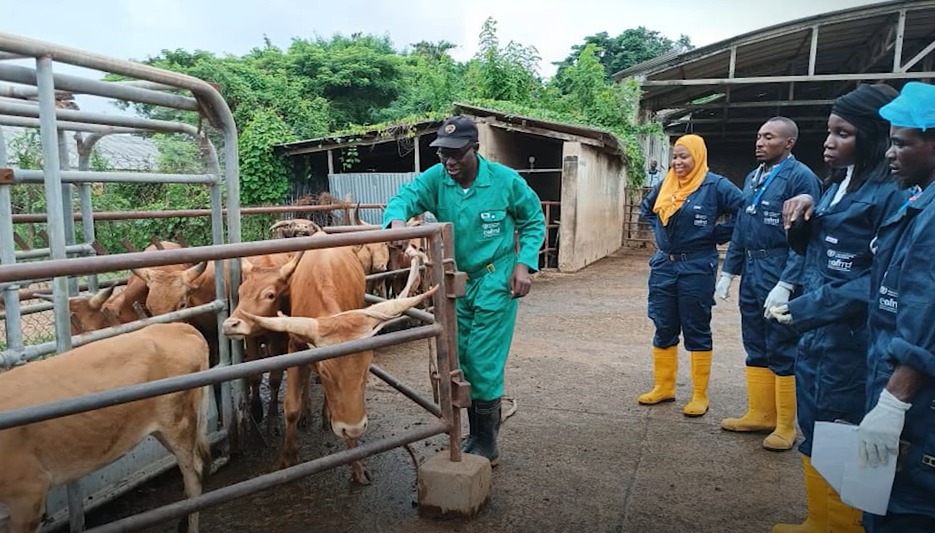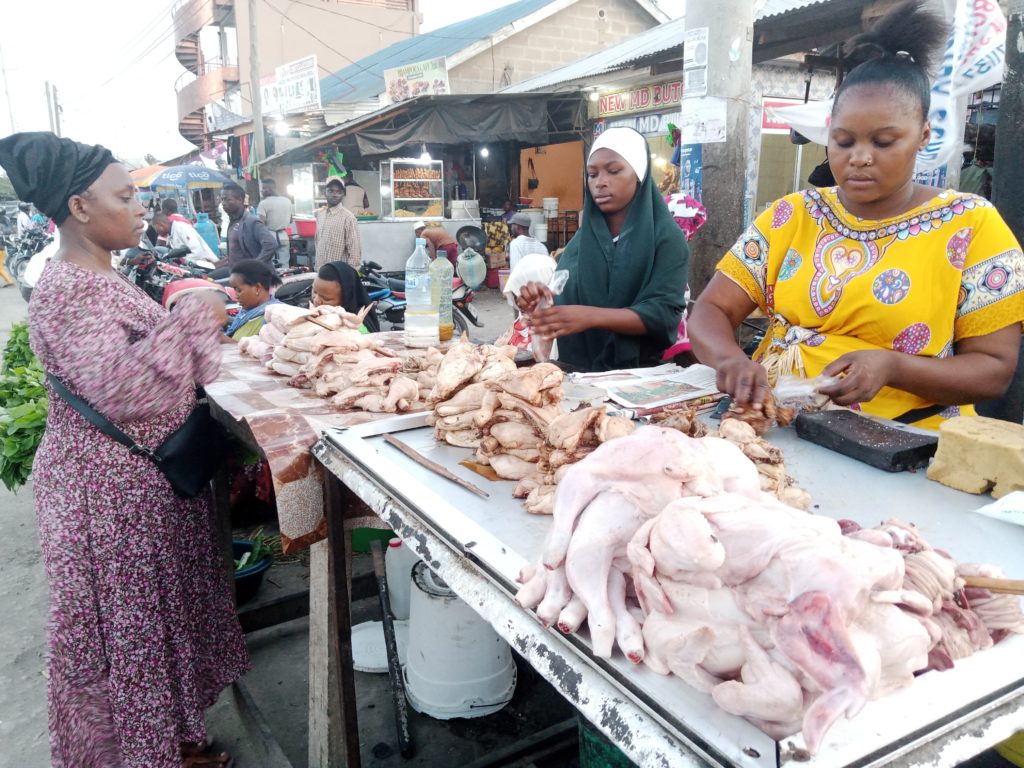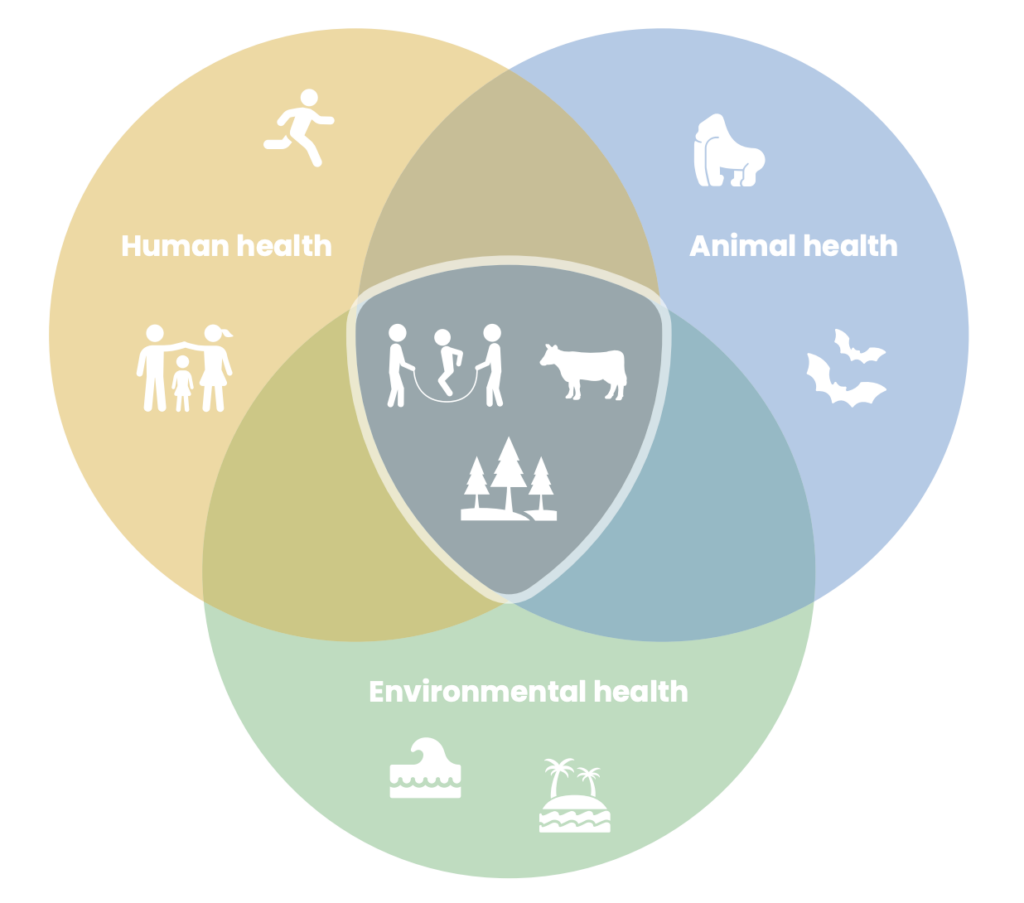Everyone Can Play a Role in Fighting Superbugs in the Animal Health Sector
Everyone Can Play a Role in Fighting Superbugs in the Animal Health Sector
By Babatunde Akinola and Dr. Columba Teru Vakuru
This article was first published by Health Policy Watch.

Antimicrobial resistance (AMR), or “superbugs,” is known as one of the most urgent global health threats, killing more than 700,000 people every year, a number that may rise significantly if we fail to address this crisis. Conversations about how to stop it do not focus enough on addressing the overuse of antibiotics in the animal farming sector, which accounts for between 70 and 80% of worldwide antibiotic consumption. Global attempts to curb it have made little progress, as evidenced by the recently adopted declaration at the last UN General Assembly, where language around animal use was weakened in negotiations leading up to the High-Level Meeting where the declaration was approved.
Still, countries can and should do a lot to improve antibiotic use in agriculture.
In response to this growing crisis, the Nigerian government and the Arlington, Virginia-based Management Sciences for Health (MSH), have been working to strengthen policies and improve appropriate use of antibiotics in collaboration with stakeholders from both the human and animal health sectors.
Our experience in Nigeria—one of a number of countries in Africa which MSH has supported—illustrates some challenges and opportunities, and where countries might begin their work.
Protecting livestock
Farmers typically turn to antibiotics to protect their livestock. But in many low-and middle-income countries they may do so without professional guidance or in inappropriate doses. They may administer the wrong drugs or for the wrong reasons—not in response to a specific, lab-identified pathogen and drug susceptibility test, but for widespread disease prevention and growth promotion.
The problem is exacerbated by the fact that antibiotics are readily available over the counter in local markets, sold by untrained vendors without capacity to guide farmers. In Nigeria, many regions lack effective government regulatory oversight. Public awareness of the AMR risks associated with excessive antibiotic use amongst animals remains low. Farmers who have not been fully educated on the risks will often continue to use antibiotics indiscriminately.
Insofar as the health of animals, humans, and the environment is interconnected, and efforts to address AMR should be too.

Veterinarians, medical professionals, government agencies, farmers, and civil society must work together to develop and implement comprehensive AMR strategies. Several key areas are crucial to these efforts. They include:
- Strengthened government policies and regulatory frameworks
- Increased public awareness, particularly among the farmers themselves
- Promotion of a ‘One Health’ approach that recognizes the linkages between animal and human antibiotic use—and associated health benefits as well as risks.
Strengthening government regulatory efforts
Governments need to build on the regulatory frameworks that exist and ensure that they are enforced effectively. Antibiotics should cease to be sold freely in open markets, and farmers should only have access to antibiotics under the guidance of trained veterinarians. Regulatory bodies must take stronger action to control the distribution of antibiotics, ensuring that they are used in accordance with established World Health Organization guidelines. Laboratories need to be strengthened, ensuring that facilities are equipped with reagents to test for resistant organisms.
Governments should also support farmers to help them reduce AMR. Right now, the cost of testing and treating sick animals is borne by farmers in Nigeria and many other countries. Can the government subsidize some of that cost? What about insurance for farmers who experience losses due to illness among their livestock? Investing in research into effective alternatives to antibiotic use, and enhancing implementation of basic biosecurity measures and animal health services are other areas to which governments could contribute to reduce the need for antibiotics for otherwise healthy animals and herds.
Public awareness: education of farmers, veterinarians and communities
The public, veterinarians, and farmers alike must understand the risks of overusing antibiotics and the long-term consequences of antibiotic resistance – for animals as well as people.
For instance, in Nigeria, many of our activities will involve supporting the Federal Ministry of Agriculture and Food Security initiatives on social and behavioural change. This includes activities such as: hosting town hall educational meetings with farmers and suppliers; working with secondary school clubs to promote AMR awareness; educating members of the media; and developing radio jingles to talk about the dangers and promote alternatives to antibiotics and other antimicrobial agents.
Civil society organizations (CSOs) can help bridge the knowledge gap by promoting education to farmers and local communities, particularly in hard-to-reach areas, helping them understand why reducing antibiotic use is so crucial, and encouraging hygienic, responsible, and more sustainable farming practices. With a nuanced understanding of cultural contexts and resource availability at the community level, they can help explain biosecurity measures and why they work and dispel myths that might foster resistance to implementing such measures.
CSOs can continue to advocate for stronger policies and help build public support for AMR-related initiatives. They should engage with policymakers to ensure that AMR remains high on the national agenda and pressure governments for more stringent regulations to control antibiotic use. CSOs provide an important voice to advocate for national governments to fund AMR prevention measures, which are currently funded most often by external donors.

Promoting a One Health Approach
A One Health approach to AMR recognizes that the health of humans, animals, plants, and the environment is interconnected. Global health professionals can help break down the silos between human health and animal health professionals and promote working together toward common goals. Farmers need access to training and resources that can help them manage animal health challenges without over-relying on antibiotics. These include better sanitation practices, the use of vaccines, and effective methods for managing livestock health that don’t require the routine use of antibiotics.
Collaboration across sectors is essential to understand the full scope of AMR and to implement policies that address it comprehensively. In Nigeria, we hold quarterly meetings with stakeholders from the government and the various sectors to share lessons, progress we have made, and how we can coordinate activities based on the data we’re seeing.
AMR is a complex and global problem, but it is not insurmountable. The role of the animal farming sector in reducing antibiotic use is critical, and Nigeria’s experience highlights the importance of coordinated efforts among the government, farmers, veterinary professionals, and civil society. Through stronger regulations, better education, and collaborative approaches, we can contain AMR, prevent the rise of superbugs, and ensure that antibiotics remain effective for future generations—both for the health of our animals and the well-being of all people.